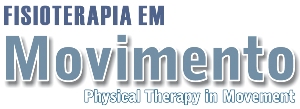INTRODUCTION: Body balance is a complex process involving reception and integration of sensory stimuli integrating the information from the vestibular system, the visual receptors and the somatosensory system. OBJECTIVE: To investigate the acquisition of motor milestones in children with Down syndrome who perform equine therapy or physical therapy. MATERIALS AND METHODS: Cross-sectional study included 33 individuals with Down syndrome, aged 4 to 13 years, of both sexes divided into two groups: Group 1 - hippotherapy; Group 2 - physiotherapy in soil. Motility global, static and dynamic balance were assessed using the Scale of Motor Development (EDM). We used a questionnaire to report the acquisition of motor milestones, likely changes in hearing acuity, visual and/or postural, muscular strength and treatment time. RESULTS: To examine the variables held the Shapiro-Wilk test, the Chi-Square test and Fisher's exact test, ANOVA followed by Bonferroni post hoc and the significance level was 0.05. The acquisition of motor milestones in children with Down syndrome have considerable delay compared to children with normal development p < 0.05. Children who perform physiotherapy feature both static equilibrium as the dynamic better than individuals performing hippotherapy p < 0.05. CONCLUSION: The conventional physiotherapy had positive influence in getting their motor skills and static and dynamic balance in patients with Down syndrome.
Down syndrome; Physical therapy; Child development



